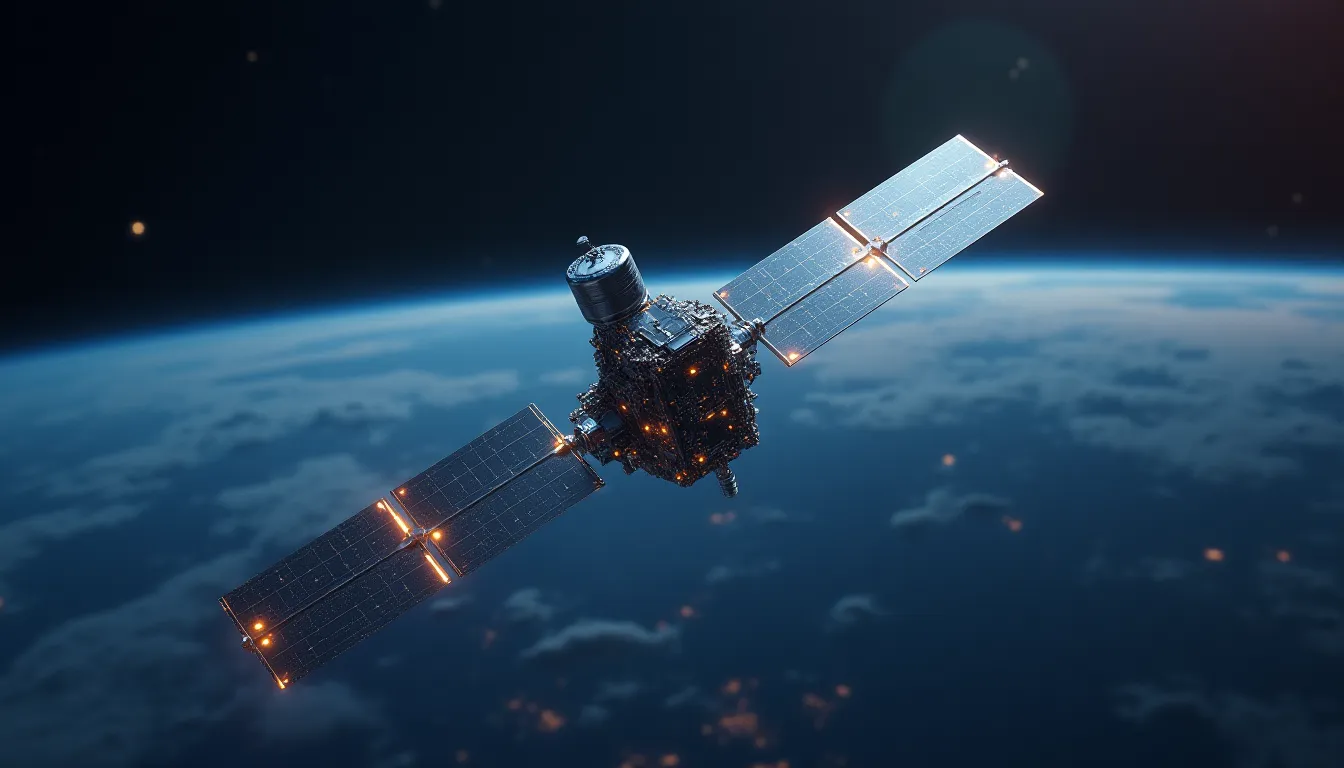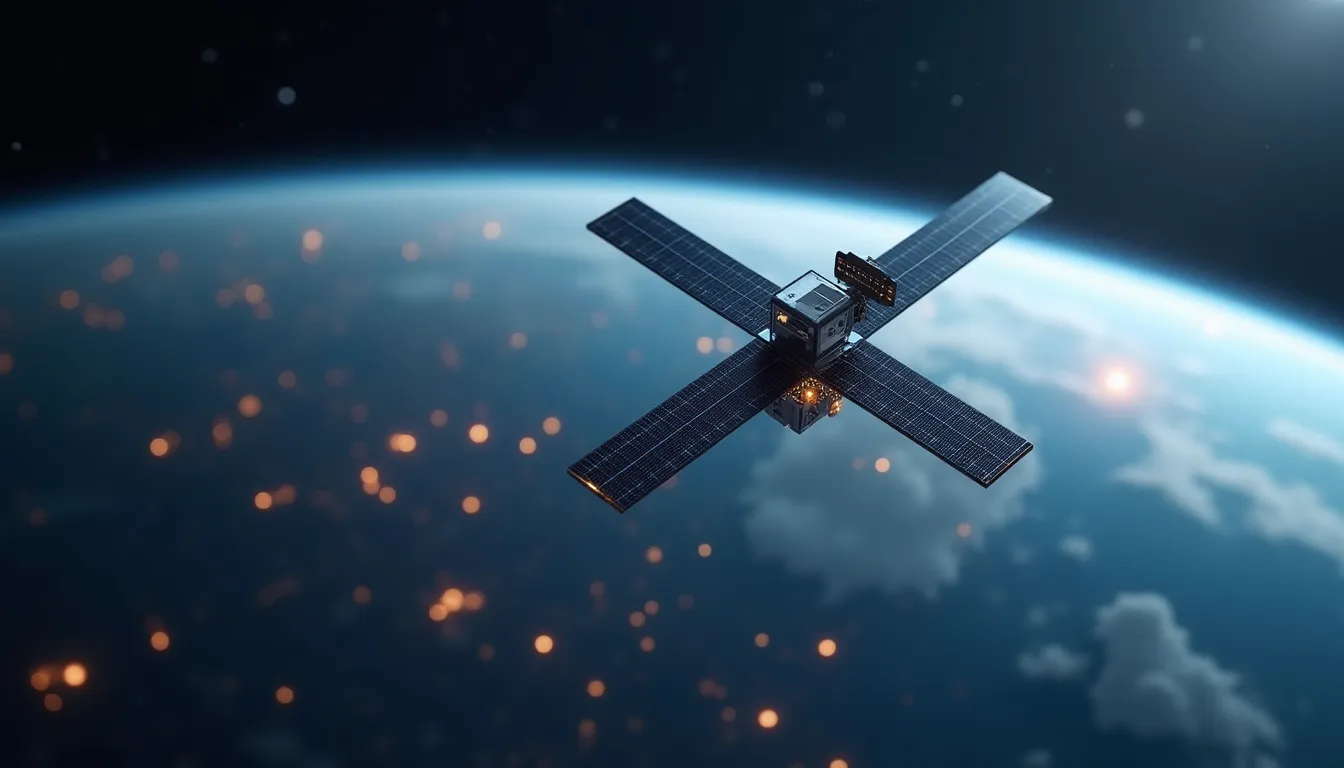The satellite sector is undergoing a significant transformation, driven by innovative technologies and visionary projects aimed at enhancing both space exploration and terrestrial applications. Recent developments highlight the increasing integration of advanced satellite systems across various industries, particularly in aerospace and defense. This article delves into the latest advancements, including NASA’s Athena EPIC mission, Jeff Bezos’s orbital data centers, the upcoming ViaSat-3 Flight 2 satellite, and Neuraspace’s space domain awareness tools.
NASA’s Athena EPIC Mission: A New Era of Scalable Satellite Technology
NASA’s Athena EPIC mission represents a pivotal step towards more efficient and cost-effective space exploration. By focusing on scalable satellite technology, the mission aims to significantly reduce launch costs while enhancing operational flexibility.
The mission will utilize smaller satellites, such as SensorCraft, which can be economically replaced in case of failures during orbit. This approach not only minimizes the financial risk associated with traditional larger satellite launches but also accelerates the pace of technological development in space. Scheduled for launch aboard a SpaceX Falcon 9 rocket from Vandenberg Space Force Base in California, the Athena EPIC mission is part of NASA’s broader strategy to streamline space operations and foster innovation in satellite capabilities.
Technical Insights
- Cost-Effective Launch Solutions: The use of smaller, scalable satellites allows for multiple units to be launched at once, reducing per-satellite costs.
- Enhanced Sensor Capabilities: The SensorCraft satellites are designed with advanced sensor modules that integrate MEMS technology for superior data collection and transmission.
Jeff Bezos and the Vision of Orbital Data Centers
In a forward-looking statement, Jeff Bezos has underscored the potential of orbital data centers as a transformative technology for improving Earth’s conditions. As Blue Origin prepares for the upcoming launch of its New Glenn rocket, Bezos emphasizes the strategic importance of leveraging space technologies for terrestrial applications.
These orbital data centers could facilitate advanced data processing and storage solutions, effectively bridging the gap between space and ground operations. The gravity of this initiative lies in its potential to enhance global connectivity, data accessibility, and even environmental monitoring.
Future Applications
- Data Processing in Space: By utilizing high-performance systems like the ZQXXSZMSS System, which features high-performance PIN quadrant detector modules, orbital data centers could process vast amounts of data in real-time, minimizing latency issues.
- Enhanced Earth Monitoring: Advanced sensor modules can be employed to gather critical data for climate studies and disaster management.
ViaSat-3 Flight 2: Advancing Satellite Connectivity
The arrival of the ViaSat-3 Flight 2 satellite at Cape Canaveral marks a significant milestone in the evolution of satellite-based communication. This satellite is part of a series designed to enhance high-capacity broadband services, which are crucial for supporting the growing demands of Internet of Things (IoT) applications.
With the increasing reliance on satellite technology for global communications, the ViaSat-3 series aims to deliver unprecedented connectivity performance, paving the way for smarter, more connected environments.
Key Features
- High-Capacity Broadband: The ViaSat-3 satellites are expected to provide robust connectivity solutions, capable of handling large volumes of data traffic.
- Support for IoT Applications: Enhanced connectivity will support various IoT applications, from smart cities to agricultural monitoring systems.
Neuraspace’s Space Domain Awareness Tool: Enhancing Defense Capabilities
As the number of satellites in orbit increases, the need for effective space domain awareness becomes paramount. Neuraspace’s recently launched space domain awareness tool is specifically designed for the defense sector, providing enhanced monitoring and management of space assets.
This tool reflects the growing interest in safeguarding national interests in space, ensuring that defense organizations can track and respond to potential threats in real-time.
Implications for National Security
- Proactive Threat Management: With advanced monitoring capabilities, defense entities can proactively manage space traffic and mitigate collision risks.
- Integration with Defense Systems: The tool can be paired with existing defense technologies, such as advanced navigation systems and precision accelerometers, to create a comprehensive space defense strategy.
Conclusion
The satellite sector is at the forefront of a technological renaissance, driven by innovative missions, visionary goals, and the integration of advanced technologies. With initiatives like NASA’s Athena EPIC mission and the development of orbital data centers by industry leaders, the potential for enhanced connectivity, data processing, and space safety is immense.
As these technologies continue to evolve, they offer promising solutions not only for space exploration but also for addressing critical challenges on Earth. The future of satellite technology is poised to redefine our understanding of space and its applications, ensuring that both commercial and defense sectors benefit from this rapid advancement in aerospace capabilities.
References
-
Jeff Bezos says orbital data centers will be the ‘next step’ for space ventures that make Earth better (www.geekwire.com) - 10/6/2025 The next launch of Blue Origin’s New Glenn rocket is due to take place at the end of October “or maybe the first week of November,” Bezos said.
-
ViaSat-3 Flight 2 satellite arrives at Cape Canaveral ahead of launch (smartmaritimenetwork.com) - 10/6/2025 ViaSat-3 Flight 2 satellite arrives at Cape Canaveral ahead of launch · Story By: Rob O’Dwyer · October 6, 2025 · Connectivity and IoT.
-
Neuraspace Launches Space Domain Awareness Tool Targeted for Defense Sector (www.satellitetoday.com) - 10/6/2025 Neuraspace Launches Space Domain Awareness Tool Targeted for Defense Sector. By Rachel Jewett | October 6, 2025. Europe.
-
NASA Tests Scalable Satellite Tech to Launch Sensors Quicker (www.nasa.gov) - 7/18/2025 NASA’s Athena Economical Payload Integration Cost mission, or Athena EPIC, is a test launch for an innovative, scalable space vehicle design to …



